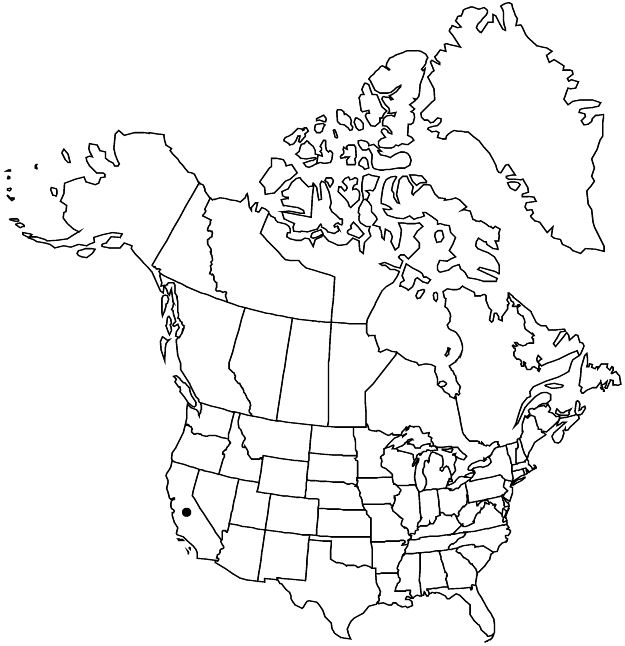Mentzelia pectinata
Proc. Calif. Acad. Sci. 3: 40, fig. 9. 1863.
Plants candelabra-form, (8–) 20–50 (–60) cm. Basal leaves persisting; petiole present or absent; blade lanceolate to linear, margins deeply to shallowly lobed. Cauline leaves: petiole absent; blade ovate to linear, to 12 cm, margins deeply lobed to dentate. Bracts green, ovate to lanceolate, 6.6–12.8 × 1.9–6.8 mm, width 1/5–2/3 length, not concealing capsule, margins 3–7-lobed. Flowers: sepals 3–13 mm; petals red to orange proximally, orange to yellow distally, 8–22 mm, apex mucronate, rounded, or retuse; stamens 20+, 4–11 mm, filaments monomorphic, filiform, unlobed; styles 5–13 mm. Capsules clavate, 12–35 × 2–4 mm, axillary curved to 90° at maturity, usually inconspicuously longitudinally ribbed. Seeds 20–40, in 2+ rows distal to mid fruit, tan, dark-mottled or not, usually irregularly polygonal, occasionally triangular prisms proximal to mid fruit, surface tuberculate under 10× magnification; recurved flap over hilum absent; seed-coat cell outer periclinal wall domed, domes on seed edges more than 1/2 as tall as wide at maturity. 2n = 18.
Phenology: Flowering Mar–May.
Habitat: Slopes of sandy or gray-white silty soils, grasslands, oak savannas, uncommonly juniper woodlands.
Elevation: 200–1400 m.
Discussion
Mentzelia pectinata occurs in Kern, San Luis Obispo, Santa Barbara, and Tulare counties, around the southern rim of the San Joaquin Valley, extending into the Inner Coast Ranges and the southern foothills of the Sierra Nevada. Petal color varies from orange to yellow, and fully fertile artificial hybrids have been obtained between populations representing the extreme phenotypes (J. E. Zavortink 1966). Phylogenetic studies suggest that M. pectinata and M. congesta have hybridized to form several allopolyploid species (J. M. Brokaw and L. Hufford 2010b) despite their current allopatric distributions.
Selected References
None.
Lower Taxa
"not elongating" is not a number.
